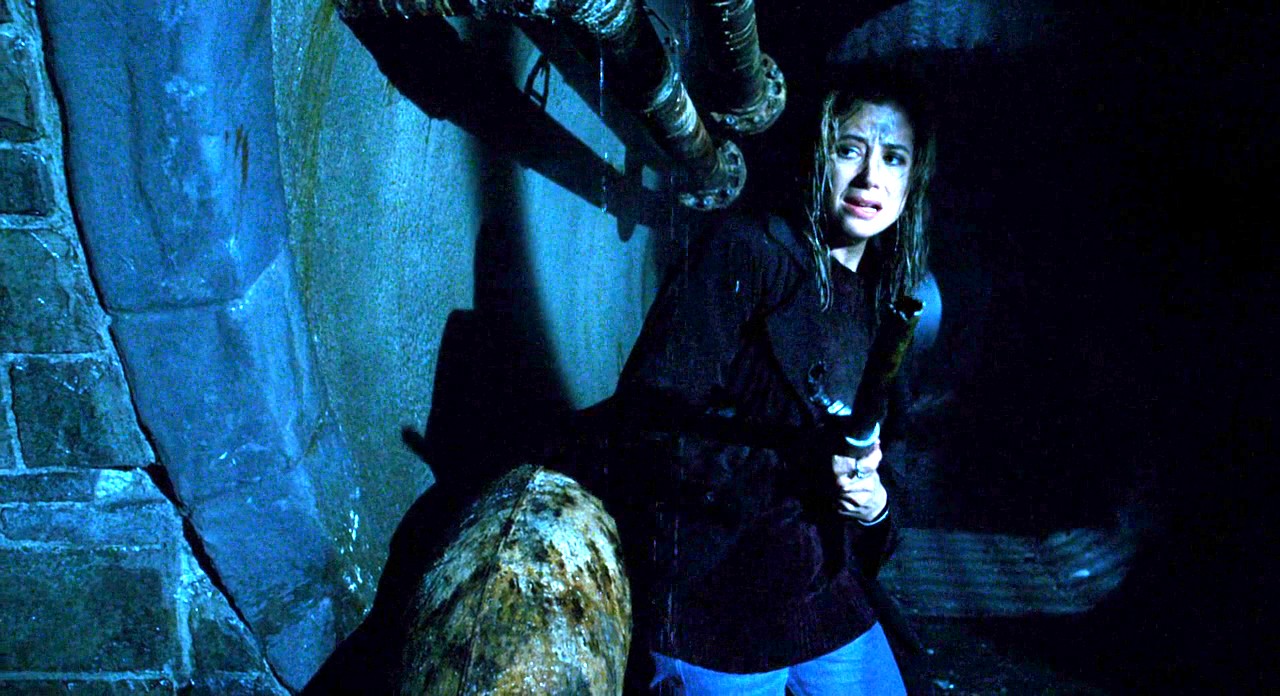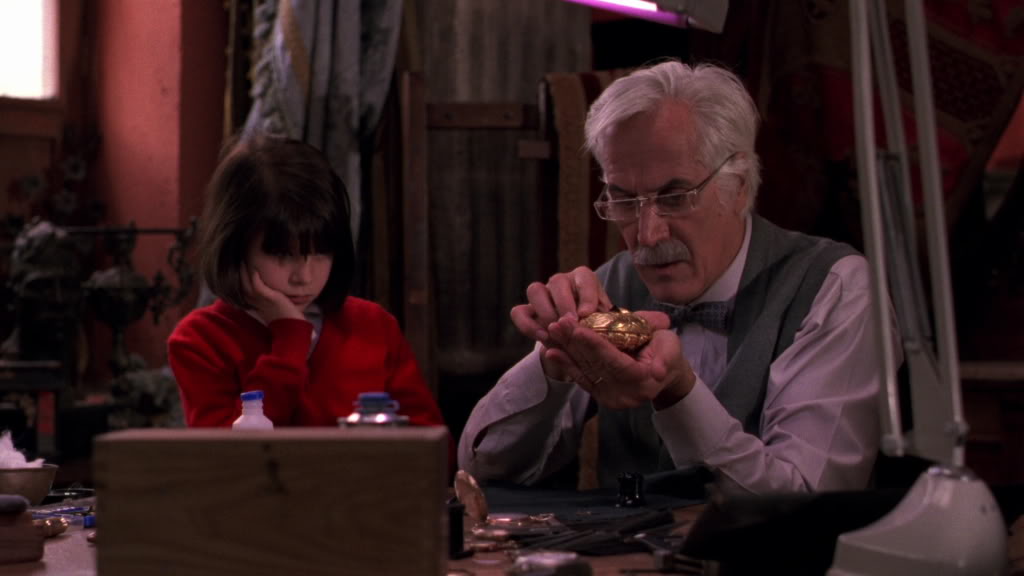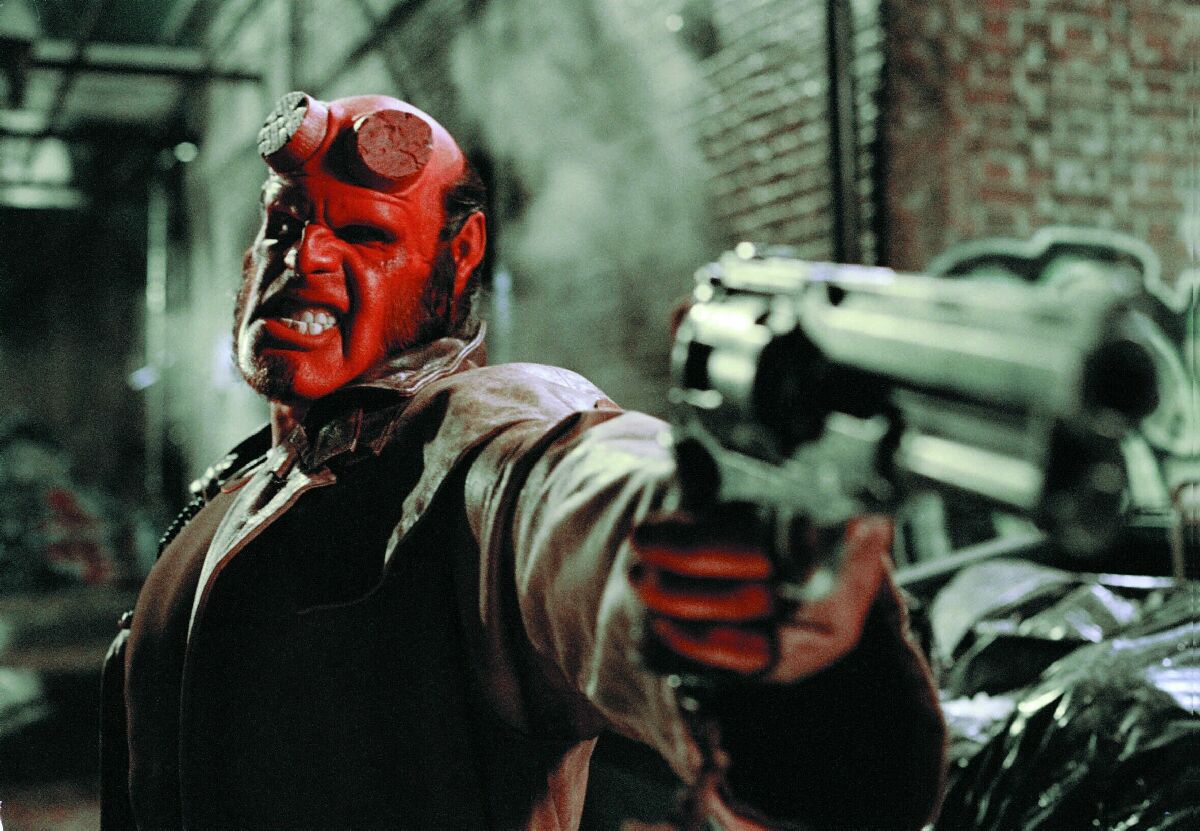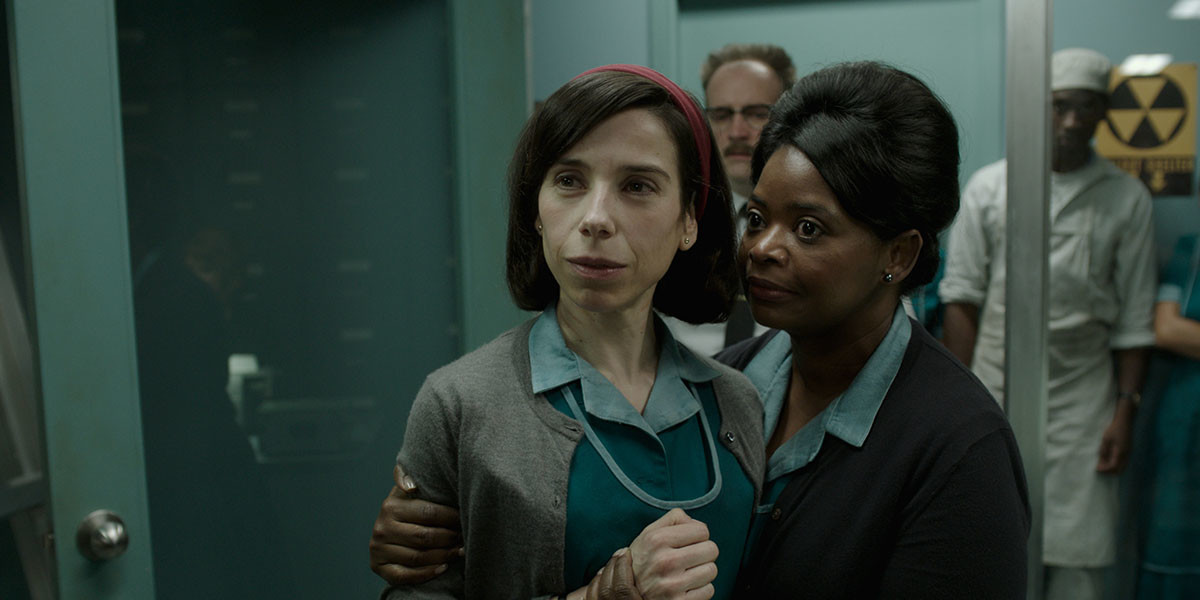
Guillermo Del Toro is one of the last few remnants of a dying breed in Hollywood.
He’s a populist director of immense personality and with a very distinct personal style, who primarily makes expensive commercial movies but is still able to imbue such projects with his unique touch. GDT is a filmmaker in the tradition of Spielberg, Carpenter and many others; people who attain both commercial success and critical respect on the strength of their craft and technical mastery.
For many people, it is through the work of such pop auteurs that the passion for cinema is first ignited – so while it is sad that there are so few of them left, at least it makes us appreciate more the ones that are able to do it.
With that in mind, let’s celebrate the career of one of our greatest populist masters, with a ranking of all of Del Toro’s films so far.
11. Mimic (1997)

The worse movies are not necessarily those most obviously devoid of any qualities, but those that, in between indefensible, baffling stretches of badness, demonstrate glimmers of what could’ve been, of a better movie buried within the mess.
One of the most frustrating examples of this is “Mimic,” Del Toro’s first Hollywood studio movie and, ironically, almost his last. On the surface, it has all the makings of a classic Del Toro creature-feature, featuring a ridiculous premise (about a group of scientists fighting a plague of mutated cockroaches who can mimic their prey), magnificent practical effects (including terrifically disgusting monster designs), and a carefully constructed atmosphere of dread.
And yet, while those elements do work individually, somewhat, “Mimic” as a whole feels broken;famously a victim of Harvey Weinstein’s scissorhands, the film we have is a severely compromised version of the director’s original vision that had to be diluted down from what we now know to be his trademark sensibility for a more palatable blandness. The result is a big nothing, a generic B-movie with very little personality.
10. Cronos (1993)

Del Toro’s debut is an interesting oddity when viewed in the context of his subsequent career. “Cronos”, at once, demonstrates an artist with a fully formed personality but also with very little control over craft; an auteur of already established interests and obsessions, but lacking in the mastery of film language necessary to make them come alive.
It’s impressive, on one hand, that Del Toro came out of the gate with such a distinct voice; almost every single element that would come to define his work is present in “Cronos”: his passion for fairy-tale-ish narratives (including sharply binary and rigid divides of good and evil),the integration of fantastical elements with the mundane, carefully designed practical effectsand a shamelessly sentimental tone.
But if later in his work, with greater artistic maturity and a much more assured command of craft, Del Toro managed to create some masterpieces out of those ingredients, his first attempt is wholly flat; “Cronos” is narratively and formally underwhelming – not that there’s anything particularly bad about the movie, it’s just a fairly innocuous, insipid film.
9. Pacific Rim (2013)

It’s interesting that Del Toro has attained a certain aura of respectability, that he is broadly (though not universally) considered a great modern auteur, considering he’s by far the least fussy major director around; never afraid to indulge in silliness and campiness. In fact, the sillier the material the more he seems attracted to it.
“Pacific Rim” is his most nakedly ridiculous movie; a kaiju extravaganza that doesn’t double as some kind of labored metaphor for trauma or imperialism. Del Toro’s interest with this one really does begin and end with seeing giant robots fight giant monsters. But while that purity of intention and lack of arrogance that is all too common in modern “genre” cinema (in trying to “elevate” a genre that was doing just fine as it was) is refreshing. Unfortunately, the results aren’t as fun as they sound on paper.
Compared to most other blockbusters of its era, “Pacific Rim” is a masterpiece, if nothing else for the fact that it’s actually directed by a human being, instead of the product of an algorithm or studio committee. Del Toro’s fingerprints are visible in every gorgeous frame, the film is often beautiful to look at (especially in its lush use of color, another breath of fresh air in the current landscape) and features some truly great set pieces. Unfortunately, it also peaks halfway through, with the Hong Kong battle, and still slogs for about another hour – not to mention the lead is a charisma vacuum, something only worsened by the fact he’s trapped in Del Toro’s worst ever love story.
8. Hellboy (2004)

Another excellent example of Del Toro’s unfussiness when it comes to choosing material is his willingness to not only make a superhero comic book movie, but to make it from a relatively obscure character: “Hellboy”.
Of course, looking back now, with a few more decades of familiarity with Del Toro’s cinematic obsessions, it’s very easy to understand what attracted him to this piece, obsessed as he is with monsters and their humanity. It is the most recurring theme in his work and one that, arguably, he never realized more fully than in this film and its sequel. It’s a feat owed almost entirely to casting; he would go on to create more elaborate designs and more impressive prosthetics, but Del Toro never again found a monster as charismatic as Ron Perlman’s titular hero, who can be effortlessly cool and endearingly vulnerable in equal measure. And the love story between him and Selma Blair’s Liz is the most delicately constructed romantic relationship in this director’s oeuvre.
But while those elements (which would come to be much better explored in the second one) are already present in this first film, they’re suffocated in the midst of many other less compelling parts: the action scenes are shoddily directed, the villains are a non-entity and, worst of all, the de-facto protagonist is the blandest character in the whole movie, someone who was meant to be an audience surrogate but only serves to kill any emotional involvement and narrative momentum.
7. The Shape Of Water (2017)

Most cinephiles understand that the Oscars are not, never have been and are in no immediate danger of becoming, purveyors of actual quality – the Academy is an institution of aggressively middlebrow (not to say mediocre) taste and highly questionable decisions, whose history is littered with laughable winners and criminal oversights.
But still, there’s no denying that it looms large over cinema; the Oscars are not something anyone even mildly interested in film can fully ignore. For better or worse, their stamp of approval means something. For the individual people who win then, it’s a wonderful thing, a career boost like no other. But for movies themselves it can often be the kiss of death; a blow to their artistic credibility, leading people to exaggerate their flaws – which is how, paradoxically, the general reputation of movies like “Shakespeare In Love” or “The King’s Speech” is worse than if they had not won Best Picture.
It’s early, but one can already see the same process happening to “The Shape Of Water”, which, only 4 years into its awards triumph, has already been mockingly reduced to the monicker of “the fish-sex” movie. Not that that’s an inaccurate description of Del Toro’s fairy-tale, but the crassness of the term dismisses the fact that the director sees this as a genuine love story. Del Toro can be accused of many things, but cynical isn’t one of them.
In fact, that’s why it’s strange to see “The Shape Of Water,” of all movies, being dismissed as cheap Oscar bait, as prestige-chasing mediocrity; because it’s so clearly a very personal film, the result of Del Toro’s unique obsessions and interests. It’s far from his best, of course, (too sappy and formulaic), but the fact that something like this managed to strike a universal chord, even with the most conservative of filmgoers in the Academy, is a testament to Del Toro’s emotional honesty and open-heartedness.